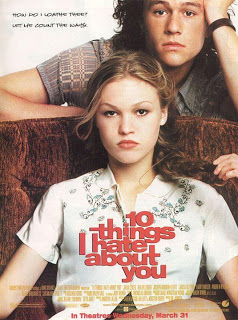Last year, I needed a table. I had moved into my apartment and hoped to serve a meal of cereal and soy sauce packets to friends. Chairs would have been a classy touch.
10 Things Everyone Should Do, But Especially Young People (With Pictures!)
Are you a mom raising your children in a world of Facebook, Youtube and the World of Warcraft? Do your children have a phone growing out of their palm and a laptop attached to their legs? If so, or if you are a kid yourself, below I have made a list of the things young people (child to young adult) should do based on what I wish I had done more of (or less of) when I still had freedom in my schedule. Actually, this list can apply to anyone who has the time to do it, which tends to be young people. The list spans from early childhood to college years as these are the years I had the most free-time to do what I wanted. So parents, may this list justify going on a family outing, signing your kid up for an extra-curricular activity, or forcing a pale child off of a computer and outdoors.
As a child…
1. Watch less TV. Play more in the yard: Stop watching Saturday morning cartoons. The best moments are outside. I’m not saying parents should confiscate their children’s phones and lock them out of their house. Actually, yes, that is what I am suggesting.
Memories: Getting chased by dogs, jumping in ponds, and getting run over by my brother on his bike even though he could clearly see me walking from a mile away.

2. Get along with siblings: Most siblings annoy each other at some point. It’s not until I got older that I realized the importance of my brothers. They were the only ones around, and I might as well enjoy them without wanting to beat them up. Ways to inspire siblings that don’t get along: show them this picture of Luke and Leia from Star Wars . . .

3. Love Dad more: I’m sure everyone has a family member they wish they could be closer to. I am happy to say I love my dad very much, but I wish I had done more to love him as a little girl. So dads, do what John Mayer says, and “love your daughters.”

As a youth…
4. Take lessons: Interested in something? Turn that interest into a concrete goal. Start learning now before life becomes demanding. There are a couple things I regret not pursuing like piano lessons, guitar lessons, sword fighting lessons . . .
Note: My emphasis is on learning from a mentor. There is time in college during the first couple years before you get super busy with your major. If all else fails, there’s always instructional videos on Youtube.

5. Flirt with that cute boy/girl: When I was young, my ideal romance was to fall in love with my childhood friend and marry him. Despite this wish, I was afraid to show my feelings. Freedom to show your preference for someone takes away anxiety and makes things natural.

Note: Parents can encourage youth to show their feelings (at the right stage in life, of course). If they end up getting their heart broken, that’s part of life. With the right outlook, a broken heart can teach empathy.
6. Pay attention: I wish I had paid attention more in History and Geography class so I wouldn’t feel dumb or unpatriotic when I’m asked a question a fifth grader knows the answer to.

7. Try out for the . . . : When I was in high school I was afraid to try out for anything even if I wanted to. There are a few things I wish I had tried out for.
Examples: The school play, the jazz choir (internationally known), and talent shows.

Note: Parents should have their kids try out for something, especially if they seem interested. Sometimes it just takes a little encouragement and a lot of compliments. It’s a good experience, and there is nothing wrong with bending the truth to boost that ego.
As a young adult . . .
8. Study less. Friends more: College is for partying, unless you’re like me. I was good at using school as a reason not to spend time with friends. Luckily, this lasted only a short time before I realized the memories mattered more. I managed my schedule better. I did not need forty-eight hours to study for that test worth one percent of my grade.
Tip: Take away the guilt and organize your priorities.

9. Think about my future: In college, I enrolled in classes for a major I had been good at in high school. I wish I had explored the different kind of careers available in the world today. There are so many things we can do, and it would be a waste choosing something familiar just because we know we are good at it.

10. Forgive more: I went through a phase of criticizing everything around me, mainly my church and my church leaders. I realized at some point how this criticism kept me from appreciating the good things. Learning forgiveness is important at any phase of life, so I suggest learning how to do it as soon as possible.

These are just a few highlights. Overall, I am very happy with these phases of my life, and any regrets are small compared to the fact that I did do many life-changing experiences like going to another country, studying musical instruments and making lifelong friends. Also, it’s not like my life is over, just the first part. Time is short, and it gets shorter when you get older. I hope youth and parents of youth understand that and will dare to make a memory, forgive, and love without leaving room for regret.
Don’t Give Thanks on Thanksgiving!

In a way, it’s unfortunate that Thanksgiving is an official holiday.
Don’t get me wrong; I love the turkey feast with all the trimmings, love the excuse to gather family and friends, love telling my daughters about that first Thanksgiving at Plymouth in 1621 when the English settlers thanked the Native Americans and God for helping them produce a successful harvest.
But sometimes I think that the act of proclaiming an official holiday has the unintended consequence of pigeonholing the very thing we’re supposed to be celebrating. When we set aside one day to celebrate something, most people — because we’re lazy and selfish and busy — tend to feel like we’re off the hook for the other 364 days of the year.
Of course there’s value in holidays, in celebrations. But have you ever thought, for instance, that Valentine’s Day is a little strange? Aren’t we supposed to show love to those we love every day? Why set aside February 14 for that specific purpose? Same goes for Mother’s Day. I even wonder whether Jesus’s birth would feel closer to us all year long if we didn’t confine it to December 25.
I suspect the same thing about Thanksgiving.
I noticed it the day after Halloween; once the calendar turned to November, people started writing daily Facebook lists of everything they were thankful for. A blog I follow encouraged people to create Thanksgiving trees, with paper leaves of thanks to be hung each day until Thanksgiving. These are wonderful practices. But what happens the day after Thanksgiving? If we’ve spent almost a month in a thankfulness binge, working ourselves up into a frenzy of gratitude in preparation for The Big Day, doesn’t it logically follow that on November 29 we’ll find ourselves in thankfulness burnout?
The facts suggest yes. Because November 29 will be Black Friday, when millions of people across the country will spend hours lined up at stores in order to buy stuff. Isn’t this consumption, this longing after what we think we need, the very opposite of thanksgiving? Less than twenty-four hours after giving thanks for our plenty, we’re right back to dissatisfaction, craving more and newer and better. And for most of us, that’s where we’ll stay until November 1 rolls around again.
I’ve lived nearly four decades, which means that (hopefully) I’ve learned a few things. And I believe that GRATITUDE — or its lack — forms the root system of our lives.
That may sound a little dramatic, but bear with me. How we live — the choices we make, how we deal with challenges, the things we cherish — springs from our worldview. Are we optimists or pessimists? Hopeful or despairing? Do we see beauty and meaning around us, or ugliness and chaos? And I firmly believe that our worldview is directly shaped by our ability to feel gratitude.
I’m not just talking about gratitude when the sky is blue and the birds are singing and you’ve just met the love of your life; I’m talking about gratitude at all times, even when the sky is gray and the kids are sick and you’re exhausted and haven’t talked to your husband in a week. It’s easy to be grateful when everything’s going your way, but most days aren’t like that. There are days when my husband — my gratitude inspiration — says, “Well, thankfully we’re not mining coal.” There are days when the best he can come up with is, “Well, I’m grateful we’re not in prison.”
But if gratitude is the root system of your life, then you can almost always find it. From the smallest thing, like the way that leaf just drifted down, to major things like family and friends and GOD, gratitude can transcend our present circumstances and give us hope. It can turn pessimism to optimism, chaos to meaning.
The thing about root systems is that they’re always there, regardless of what’s going on above the surface. This fall, my daughter’s preschool asked families to volunteer for various maintenance tasks. I signed us up for “putting the garden to bed for winter,” because it sounded fun to do with the kids — and also because my parents (excellent gardeners) were coming to town. “Putting the garden to bed” sounds sweet, like you’re tucking it under a comforter with a glass of milk. But really, it involves chopping and raking and yanking, getting rid of all the dead leaves and debris. When we were finished, the garden looked like a flat, lifeless patch of scorched earth. But it isn’t, because the roots are still alive underground.
I see this is my own yard, too. We live in the woods, and I’m forever waging war against trees that want to encroach upon the small clearing around our house. Every spring I take my shears and chop down the seedlings that have pushed through — and I have to do this every spring, because the living roots underground always send up new shoots.
That’s how gratitude is: always there, running under the surface and pushing up shoots of hope regardless of weather or crazy homeowners with shears. But gratitude takes practice; we have to train our eyes and our hearts to see the world through a lens of thankfulness. That’s why parents have to nag their children to say “Thank you” — it’s not in our nature.
And that’s why I hope that we all might start seeing gratitude as a year-round marathon, not just a pre-Thanksgiving sprint. Maybe this year, we won’t just give thanks on Thanksgiving. Maybe this November 29, instead of hitting the stores for a new battery-operated something, we can set aside some time to keep exercising our gratitude.
The Thankfulness Ultimatum
Thanksgiving is a pretty cool holiday, and though it has been hijacked by the food industry and now causes panic attacks in kitchens across the nation, I believe it is still a sound concept; as a people, let’s set aside one day to be grateful.
Our pilgrim forefathers did not live in a materialistic society soaked in consumerism. I doubt that ol’ John Smith listed his new musket and leather boots as they went around the table sharing what they were thankful for. But again, I believe in Thanksgiving.
So, how do we, as parents, help our children participate in the core truth of this holiday? First off, there is no need to banish the trimmings and fun. In fact, that is part of what makes our family traditions memorable. Trace those little hands and make paper turkeys! Make pie and more pie! Invite loved ones, light candles, play games, and go into that carb coma like a boss!
The unpopular (because parents don’t love it when I tell them this) truth is, genuine thankfulness cannot be demanded. It cannot be shamed or guilt-ed into. It is a natural response to the realization that you not only have something of value, but that there are others who do not. If you are not old enough, with a measure of awareness of what happens beyond the borders of your own little world, you just don’t think in those terms yet. And that is okay! Childhood is for the immature, for being self-focused, for believing that what you experience is totally normal and what every other kid on the planet has or does.
Now I know what some of you are thinking: “Well, then it is my job to inform my child of the poor and needy in the world, that way they will realize how good they have it and start appreciating it for once!” Please don’t do that, and definitely not for the reason of manipulating your children into gratitude. This will only instill fear and anxiety in young ones.
I believe that the best way to instill gratitude in the hearts of children is to model it throughout the rest of the year. YOU be a thankful person, especially in front of them. Talk about how blessed you are in the areas that are meaningful to them.
I am so thankful that . . .
God chose me to be your mommy.
I have a healthy body and can run around after you!
We have a safe and cozy place to live.
Daddy has a job.
God loves and likes me just the way I am.
Cultivate a home where there is far more attention paid to blessings than there is to complaints. Use self-control. Be patient with you 4 year old who is thankful for apple juice and shoes that make him run fast. It’s fine! Perspective comes with time and experience and our little ones are in their first few warm-up laps.
Gratitude trees and activities are wonderful. I love them. But I challenge you to remember that it is how your kids see YOU respond to LIFE that will have the most impact on them in the long run. Are you grateful? Do you spend a lot of time dwelling on negative aspects of life that you have no control over? Are you expecting someone to come fix things for you? Do you regularly complain about what you do not have? Work on that, not whether your children realize how good they have it compared to people you see on the news.
Eventually, life will bring opportunities for our kids to become exposed to some of the harsh conditions in our world. As older kids and teens, they will be able to process that without being overwhelmed with fear that it will happen to them. Welcome those moments, resist the urge to say “I told you so”, and be compassionate. Let gratitude bloom in their hearts naturally. A “thank you” can be required, but true thankfulness is voluntary.

Moving Forward, but Still Remembering
I don’t know about you, but I love this time of year. The leaves changing colors, the crisp, cool air, the festivities and holiday gatherings. There’s a refreshing sensation I feel when I walk outside on a fall day, and take in my changing surroundings. Something stirs in my soul too. An excitement for what’s ahead. A desire for positive changes and new goals. A new year, with new opportunities.
While having those exciting thoughts and feelings, I’ve also come to the realization that not all of us feel that way. Some people can’ t wait for the year to be over. All they can think about is what’s next. They yearn for change and a chance to get away from the year they just had. They want to move on and start over.
While going through a weekly women’s Bible study at my church recently, I learned a valuable lesson. One I think others could use reminding of as well. Although there is nothing wrong with looking forward to a fresh start, building new memories or experiencing new things, we can’t lose sight of where we just were. Our past is part of us, and our experiences are what mold us into who we are.
The past is where our testimony started, and our present is where we can show what we’ve made of ourselves until now. Christ wants to meet us where we are today, but He never left us where we were back then. He’s been walking beside us, and I, for one, am grateful for where I’ve come from, what I’ve learned, who I’ve met AND where I’m going. It’s all part of growing and becoming who we are. This isn’t to say I haven’t experienced deep loss, heartache or pain that I’d prefer to have gone without. This means DESPITE experiencing those things, I’ve grown from those experiences and they are part of me. I don’t want to forget about them, because they’re part of my testimony. Those unfortunate circumstances have increased my faith, and made me even more grateful for the blessings in life.
Whether it was losing my first child to a miscarriage at eleven weeks, or losing my dad when I was only twenty-six and had just had his first grandchild, I am now stronger because of those experiences. There are others I can mention, but you don’t need to know each example I can give you, as I’m sure you have your own unfortunate experiences to grow from. I mention those things to let you know they were some of the absolute lowest times of my life. By far the most heart wrenching, trying, exhausting and almost unbearable circumstances I’ve ever gone through. And yet, I survived. I pulled my strength from the only source I felt I had left, and thankfully, I still believed Christ was my firm foundation and the only One that could help me come out of those trials with my head still lifted high.
Let me encourage you to not forget. If you had a terrible year, or a rough experience, or a long trial you never thought you’d escape from, remember there is hope. But the things you went through are building blocks. God helped in establishing the foundation of who you are. Don’t try to start over and rebuild from scratch. Learn to build from where you left off.
You’ll not only be a stronger person because of it, but you’ll also be more equipped to encourage others who have come from similar places you’ve been. Enjoy the changes coming in the new year, and when you look back, don’t try to forget; try to embrace all you’ve been through, and move forward with fresh eyes and a wonder for what you get to experience next.


